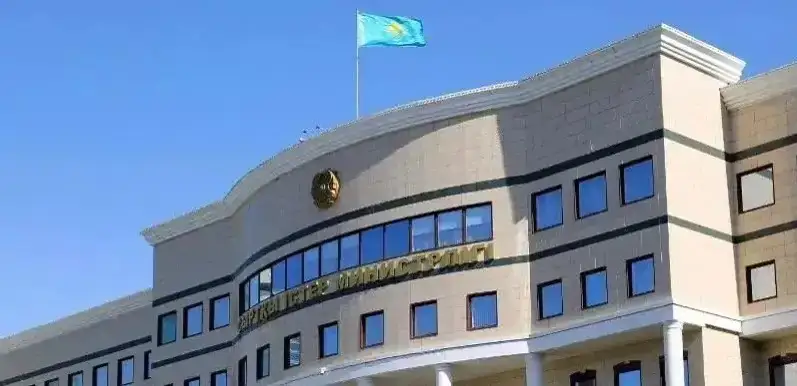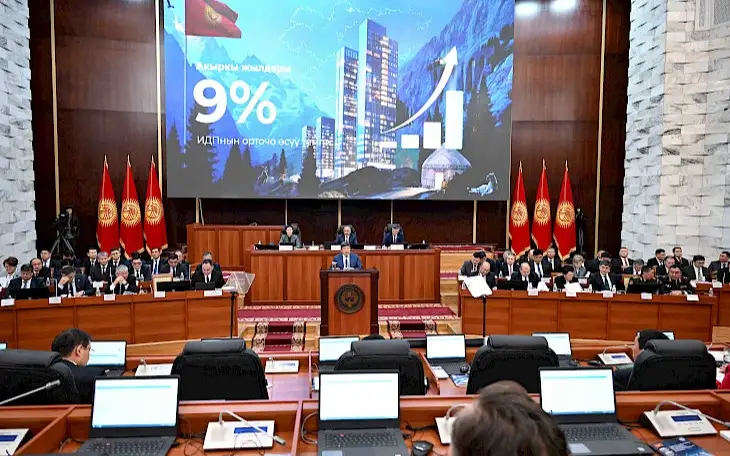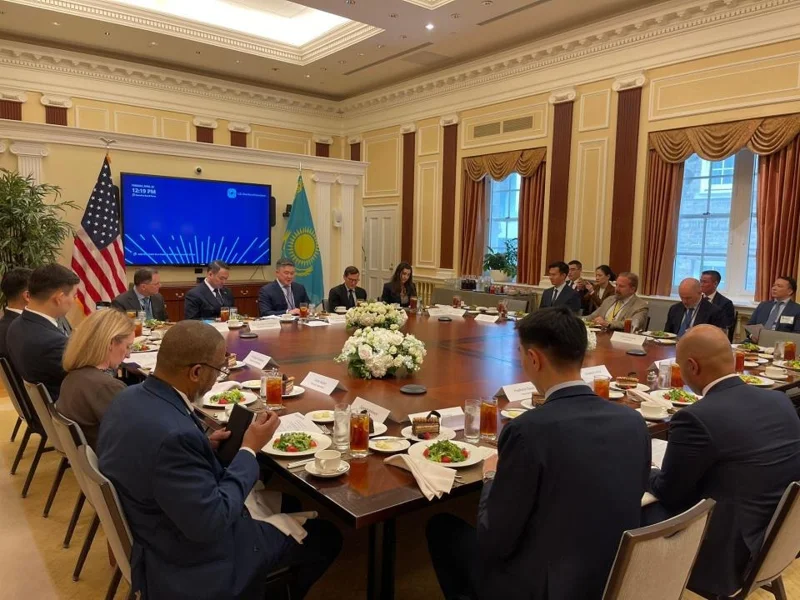A Kazinform correspondent highlights Kazakhstan’s key foreign policy achievements in 2024, citing Ministry of Foreign Affairs.
Leadership in international organizations
Kazakhstan chaired several key international organizations, including the Shanghai Cooperation Organization (SCO), the Organization of Turkic States (OTS), the Conference on Interaction and Confidence-Building Measures in Asia (CICA), the Collective Security Treaty Organization (CSTO), the Consultative Meeting of Central Asian Heads of State, and the International Fund for Saving the Aral Sea (IFAS). These roles expanded the country’s diplomatic reach and reinforced its international influence.
Kazakhstan’s chairmanship of the SCO included hosting over 160 events covering economic cooperation, security, environmental initiatives, and digital transformation. The country spearheaded the SCO development strategy through 2035, aimed at strengthening economic and logistical integration across Eurasia. A key highlight of Kazakhstan’s chairmanship was the Astana Summit, held for the first time in the expanded “SCO Plus” format.
Under Kazakhstan’s leadership, CICA entered a new phase of institutional development. The organization adopted its Charter and Rules of Procedure, updated its Confidence-Building Measures Catalogue, and established the Forum of Analytical Centers and the CICA Fund. Kazakhstan also proposed the digitalization of interactions among member states by launching a data-sharing platform.
Within the OTS, Kazakhstan introduced the “TURKTIME!” program, aimed at strengthening cultural and economic ties among member countries. The initiative supported educational and scientific projects, led to the creation of an Investment Fund, and contributed to an increase in mutual trade, which surpassed $45 billion.
As the chair of the CSTO, Kazakhstan implemented measures to combat transnational crime, terrorism, and drug trafficking. Over 80 events were held, including military exercises and roundtable discussions. A key priority was completing the decade-long program to strengthen the Tajik-Afghan border.
Within the International Fund for Saving the Aral Sea, Kazakhstan focused on improving the management of water and energy resources and implementing environmental programs to mitigate the effects of climate change.
Water Diplomacy
Kazakhstan actively advanced cooperation on the management of transboundary water resources, holding around 35 meetings with China, Russia, and Central Asian nations. Agreements were reached with Kyrgyzstan and Uzbekistan on water supply through the Shu, Talas, and Syr Darya rivers. Negotiations with China are ongoing regarding the allocation of water resources from the Irtysh and Ili rivers. Additionally, Kazakhstan joined the UN Convention on the Law of the Non-Navigational Uses of International Watercourses.
Strengthening regional cooperation
The sixth Consultative Meeting of the Heads of State of Central Asia, attended by the President of Azerbaijan and UN representatives, marked a significant step in regional collaboration. The meeting resulted in the adoption of the CA-2040 Cooperation Development Concept, a Roadmap for 2025–2027, and an Action Plan for Industrial Cooperation.
Kazakhstan as a diplomatic hub
Kazakhstan continues to play a key role in international conflict resolution. As part of the Astana Process, the country has provided a platform for negotiations on the Syrian crisis. Additionally, Kazakhstan has proposed the creation of an international mediation center to help resolve regional conflicts.
Integration into the global economy
Kazakhstan remains an active participant in global initiatives across energy, transportation, trade, and digital technologies. The development of the Trans-Caspian International Transport Route, cooperation within the Belt and Road Initiative, and engagement in the Eurasian Economic Union (EAEU) underscore the country’s commitment to strengthening international ties. Particular focus is placed on green technologies, economic decarbonization, and partnerships with the EU and the Middle East in sustainable development and energy.
Commitment to a peaceful foreign policy
Kazakhstan will continue to pursue a peaceful foreign policy, prioritizing security and sustainable development in Eurasia. Expanding participation in international organizations, strengthening strategic partnerships with major global powers, and advancing economic diplomacy remain key priorities in the country’s foreign policy agenda.
Earlier, Kazinform News Agency reported that Kazakhstan introduced new visa categories for skilled specialists and “Digital nomads”.



